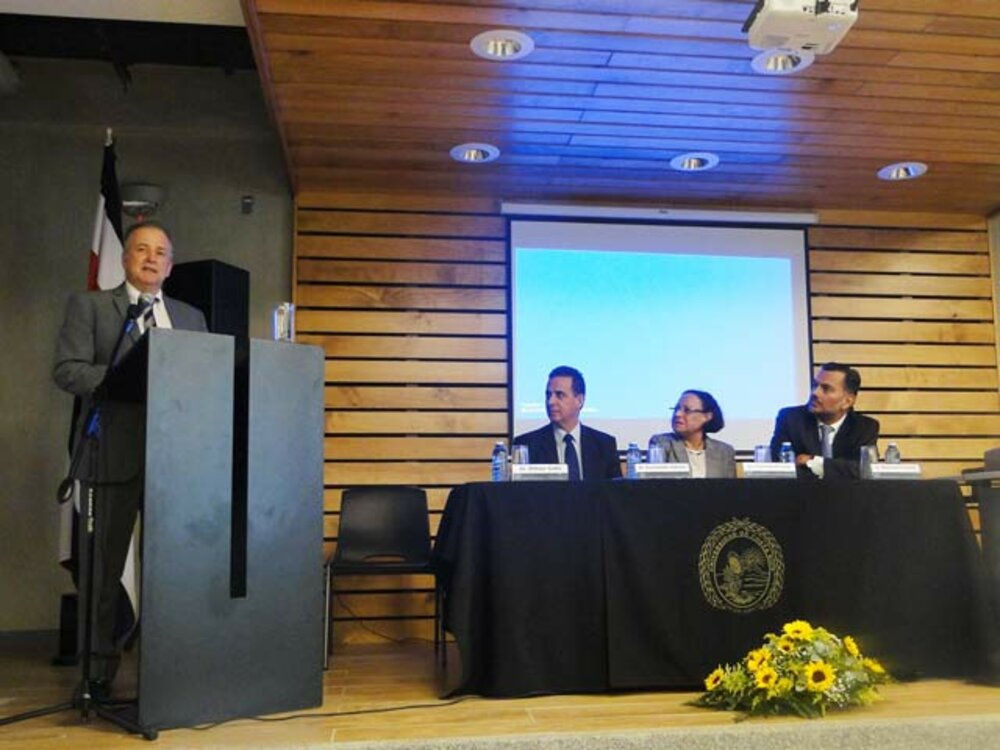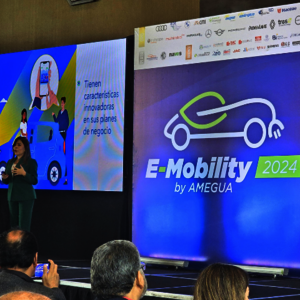UCR and CABEI inaugurate Energy Storage and Photovoltaic Generation System

The objective of the project is to generate data for decision making on the possibilities of application in the region and to better prepare the country to receive technological advances in the area of renewable energies.
San José, December 04, 2018.- Universidad de Costa Rica (UCR) inaugurated the Energy Storage and Photovoltaic Generation System in its facilities, specifically in the Electrochemical and Chemical Energy Center (CELEQ), thanks to the Non-reimbursable Technical Assistance granted by the Central American Bank for Economic Integration (CABEI), through its Project "Accelerating Investments in Renewable Energy in Central America” (ARECA); the Project invested US$80,000.00 dollars.
The photovoltaic and storage equipment was installed for the implementation of a research project, which aims to record, evaluate and compare the feasibility of the use and performance of different battery technologies (lead, lithium and vanadium), connected to polycrystalline silicon panels, under environmental conditions specific to the region, in addition to simultaneously comparing the generation capacity of a small system of dye-sensitized solar cell (DSSC).
In addition, it will contribute to obtaining a database on this type of lesser-known technologies, which will enable students and teaching staff of UCR and anyone interested to obtain first-hand information and local access to installed systems.
Likewise, it will facilitate the Costa Rican renewable energy market with access to this information for investment decision making, and so it can be replicated throughout the regional energy market in Central America.
The equipment provided consists of a generation system with 45 polycrystalline silicon photovoltaic panels, load control systems, three storage technologies based on lead, lithium and vanadium, inverters and measurement systems, nine modules of DSSC technology and wiring systems. In addition to the accessibility to the installed technologies and the generation of the database, the equipment will generate an estimated energy of 20,130 kilowatt/year for the research center, from which a general saving of US$173,700 is projected in 25 years.
CELEQ Director, Ana Lorena Alvarado Gámez stated that, "We need to raise awareness and train students from different majors in the different renewable energy and energy efficiency technologies. With this generation and storage system, they will be able to enhance their studies in photovoltaic systems, such as the different types of batteries, and in the use of the generated databases, in addition to providing the general public interested in these systems, the pertinent information regarding these new technologies."
She added that, "Thanks to this technical assistance granted by the CABEI, through the ARECA project, we have the photovoltaic and storage equipment necessary for the implementation of this project, which represents a key research opportunity to promote renewable energy development in our country, starting from of the knowledge of a greater variety of technologies."
In this sense, CABEI Country Manager for Costa Rica, Mr. Mauricio Chacón, indicated that this photovoltaic and storage equipment for the generation of renewable energy through the determination of the most optimal technology will contribute to providing access to a better use of solar energy, at a lower cost, and with a better short and medium term quality.
Through its ARECA Project, CABEI has approved 29 technical assistance initiatives in renewable energy issues for Central America. With the implementation of these projects, the development of energy innovation is promoted in the countries, in this case, Costa Rica.
The ARECA Project is a tripartite initiative of the Global Environment Facility, the United Nations Development Program, the Finnish Ministry of Foreign Affairs and CABEI as the executing organization. It supports the financing of small renewable energy projects under 10 MW.





